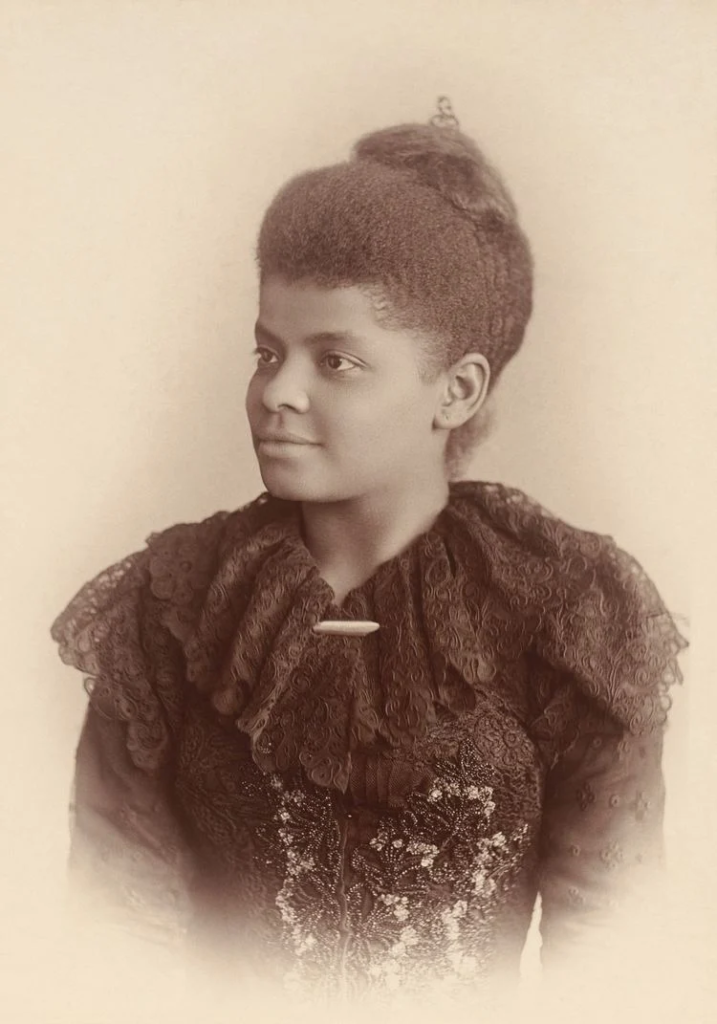February isn’t just any month—it’s a time to amplify the stories of renegade Black women who’ve defied stereotypes and rewritten history. Too often women’s contributions are overlooked, when in reality they fought and even led some of the most important movements in Black History.
It’s important that we keep the spirit of our ancestors alive as the powers that be threaten to tear down so much that they fought for. The movements they created, the way they fought for freedom and equality, and the trials they faced must never be forgotten. Today, we highlight three fierce Black women from Chicago who changed their communities and left an unforgettable legacy.

1. Ida B. Wells: The Crusading Journalist Before social media was a thing, there was Ida B. Wells, a journalist whose words were mightier than swords. Ida B. Wells was born into slavery in Holly Springs, Mississippi, but was freed as an infant under the Emancipation Proclamation. She faced tremendous adversity early in life, losing both her parents and her infant brother to the yellow fever epidemic when she was just 16. Despite these hardships, she became a schoolteacher to support her siblings and continued her own education
She fearlessly exposed the horrors of lynching through her investigative reporting, giving a voice to the voiceless. But her activism didn’t stop there. Ida co-founded the National Association of Colored Women’s Club in Chicago, focusing on both civil rights and women’s suffrage. Her relentless spirit reminds us to speak out against injustice, no matter the cost.

2. Lucy Parsons: The Radical Revolutionary Lucy Parsons was a force to be reckoned with. An anarchist labor organizer and writer, she championed the rights of the working class and the oppressed. Parsons co-founded the Industrial Workers of the World (IWW), a radical labor union that fought for workers’ rights across industries. Her fiery speeches and writings made her a formidable opponent to those in power, proving that true change often requires radical action.
Born Lucy González, her early life is shrouded in mystery. She claimed to be of Mexican, Native American, and African American descent. Parsons was a formidable labor organizer and anarchist, known for her powerful speeches and writings. She was married to Albert Parsons, one of the Haymarket affair defendants, and continued to fight for workers’ rights after his execution. Parsons was also a prolific writer, contributing to various radical publications and advocating for the rights of marginalized communities

3. Lorraine Hansberry: The Literary Luminary Lorraine Hansberry, the brilliant playwright behind “A Raisin in the Sun,” used her pen to challenge societal norms and highlight the struggles of Black families. Her groundbreaking play was the first by a Black woman to be produced on Broadway, and it brought the issues of race, class, and gender to the forefront of American theater. Hansberry’s contributions to literature and activism continue to inspire new generations to fight for equality and justice.
Lorraine’s childhood home in Chicago was the subject of a landmark Supreme Court case, Hansberry v. Lee, which challenged racially restrictive covenants. Hansberry’s experiences with racial discrimination and her family’s activism greatly influenced her work and her commitment to social justice.
These women didn’t just make history—they reshaped it, proving that when Black women lead, everyone wins. So, as we celebrate Black History Month, let’s remember these trailblazers and continue their legacy of fighting for justice and equality. And let’s not forget the Black women leading today’s movements. Because, in the words of Ida B. Wells, “The way to right wrongs is to turn the light of truth upon them.” We’ve still got a long way to go.